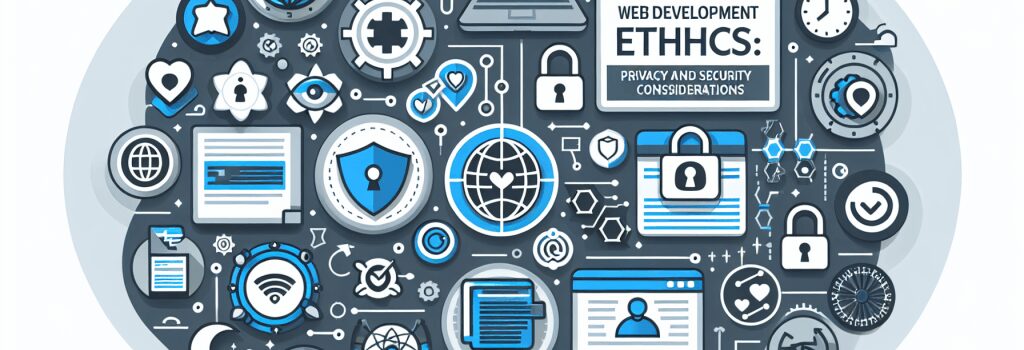Web Development Ethics: Privacy and Security Considerations

In the rapidly expanding realm of web development, the significance of adhering to ethical standards cannot be overstated, especially when it comes to matters of privacy and security. As aspiring web developers, understanding and implementing these ethical considerations not only safeguards the interests of users but also enhances the credibility and reliability of the platforms we create. This article delves into the core ethical aspects of privacy and security that every web developer should prioritize in their projects.
The Importance of Ethical Web Development
Before we dive into the specific ethics of privacy and security, it’s essential to grasp the broader scope of ethical web development. Ethical web development encompasses practices that ensure fairness, accessibility, inclusivity, and respect for user rights. Within this framework, privacy and security emerge as critical pillars, given their direct impact on user trust and platform integrity.
Privacy Considerations in Web Development
Understanding User Privacy
User privacy refers to the right of individuals to control the collection, storage, and sharing of their personal information. As web developers, it’s our duty to respect and protect this right by implementing transparent data practices. This includes clearly communicating what information is being collected, for what purpose, and how it will be used.
Best Practices for Enhancing Privacy
– Data Minimization: Collect only the data that’s absolutely necessary for the platform’s functionality. This reduces the risk of data breaches and enhances user trust.
– Clear Privacy Policies: Draft privacy policies that are easy to understand and accessible to users. This transparency about data practices fosters user confidence.
– Secure Data Storage: Ensure that all collected data is stored securely using encryption and other security measures. Regularly update these measures to combat evolving threats.
Security Considerations in Web Development
The Pillars of Web Security
At its core, web security involves protecting websites and online services against various cybersecurity threats. This includes unauthorized access, data breaches, and other forms of cyberattacks that can compromise the integrity and functionality of web platforms.
Strategies for Strengthening Security
– Regular Updates and Patching: Keep all components of your web platform, including CMS tools like WordPress, plugins, and third-party services, updated to address known vulnerabilities.
– SSL Certificates: Implement SSL certificates to encrypt data transferred between the user’s browser and your server, securing user information and transactions.
– Cross-Site Scripting (XSS) Protection: Proactively prevent XSS attacks by sanitizing user input fields and not allowing untrusted data to execute as code on your website.
Bringing It All Together
The integration of privacy and security considerations is not merely a technical requirement but a moral obligation for web developers. It’s about building a foundation of trust with users and ensuring a safer online environment for everyone. By adopting ethical practices, we not only comply with legal standards but also contribute to a more secure and respectful digital world.
As you embark on your journey to become a skilled web developer, remember that your ability to incorporate these ethical perspectives into your projects will set you apart. It’s not just about mastering HTML, PHP, CSS, and JavaScript or excelling in platforms like WordPress; it’s also about understanding the profound impact your work has on users’ lives and society at large. Empower yourself with this knowledge, and let it guide you in creating web experiences that are not only functional and engaging but also safe and respectful of privacy.


